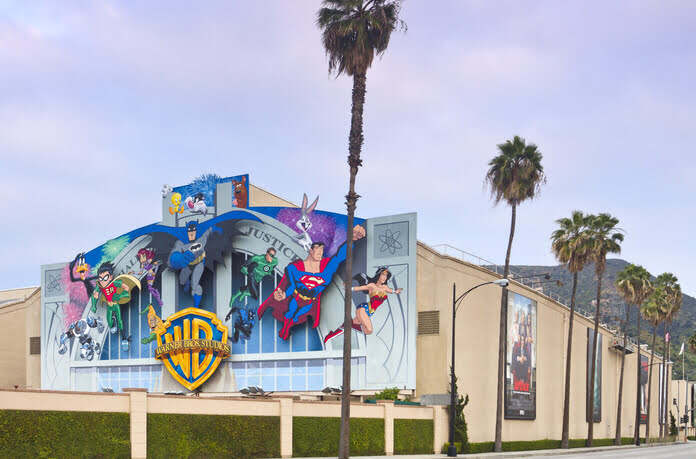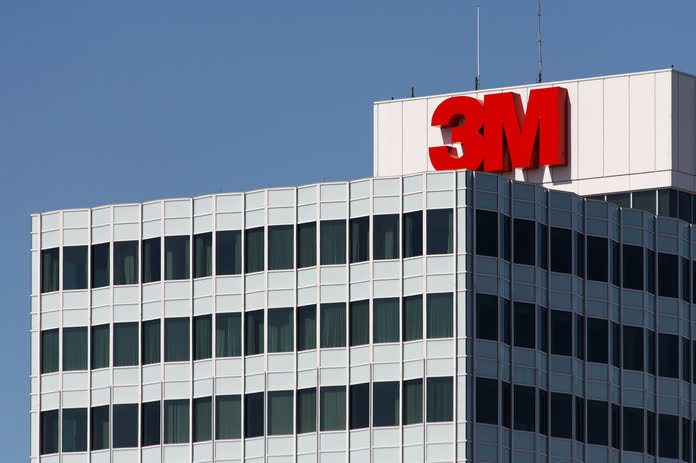With Warner Bros. Discovery (NASDAQ:WBD) stock now down almost 50% from its pre-merger price, I recently looked to see if, despite my earlier trepidations, this new price made a buy “irresistible,” as some have argued.
The stock may well be undervalued … but there’s a chance it’s not, and at any rate, I wouldn’t call it irresistible. Warner Bros. Discovery has one big cloud hanging over an otherwise strong business besides its levered balance sheet.
Is Warner Bros. Discovery Stock A Good Value?
With the S&P 500 trading at approximately a 20 P/E, Warner is a steal if you think this level of earnings is feasible.
However, this shows that the case pushed in some areas that Warner (NASDAQ:WBD) is a screaming buy is slightly exaggerated. Unless Warner makes significantly more profit than predicted, even recovery to average P/E will leave it selling at less than $20 per share – well below where it was trading just six months ago, when its predecessor Discovery entered the last Warner merger at $30 per share.
Of course, the forward P/E ratio is only as good as the profit expectations you enter. Is Warner (NASDAQ:WBD) positioned to outperform the market? Is it at risk of underperforming? These, as we all know, are crucial questions.
Warner Bros. Discovery’s Three Segments
Because the merger was finalized recently, full integration of its many constituent pieces hasn’t even begun, let alone been finished. As a result, I will use a sum-of-the-parts approach to evaluate it.
The new Warner Bros. Discovery is made up of three distinct parts:
The Discovery cable networks, including those acquired in the merger with the previous Scripps firm just a few years before this newest merger, are all focused on reality, lifestyle, and infotainment (true crime, biographies, science & technology, and so on). The Discovery+ streaming service exemplifies this.
The Turner cable networks include the news network CNN. These are still so entrenched in the old-line pay-TV monopoly that, with the demise of CNN+ after only one month of existence, they don’t have a streaming service. These networks have typically welcomed a mix of scripted and sports content, with a dash of reality TV thrown in for good measure. Turner Classic Movies also provides it with a prominent presence in that subcategory.
Warner Bros. and HBO
Most experts are focusing their attention on Warner’s non-Turner division. HBO Max is Warner Bros.’ new streaming service. With so much digital ink previously spilt on the subject here at Seeking Alpha – including by this author – I won’t go over all that has been written about it again to make way for the fundamental question I believe is crucial. To summarize, the choice to invest substantially in expansion has significantly impacted EBIT in this category. Despite a 50% increase in sales and doubling marketing and content spending, the previous HBO segment’s EBIT profit of roughly $600 million has changed into a $60 million loss.
I’ll be optimistic here because I’m about to be gloomy and pencil in a continuance of pre-COVID profit levels of roughly $4.5 billion in “Segment Operating Income” from 2019, which excludes several important charges under AT&T’s accounting. According to AT&T’s filings, roughly one-third of segment operating income does not make it to EBIT for different reasons, so I’ll call it $3 billion in EBIT. I know this may seem too low to some. Still, the devastation currently engulfing Netflix and Disney (DIS) provides circumstantial evidence that investors should be wary about projecting big earnings for even a large streaming operation.
WBD Financial Model
Whatever figure you use for Turner, the final step is to subtract interest and taxes from EBIT. I’ll be using the statutory federal rate of 21%. Debt is a little more complicated; interest rates rise as the Fed combats inflation. Leaving Turner aside for the moment, only $10 billion of the $57 billion debt needs to be refinanced until 2032. Still, longer-dated debt is currently at 5% interest. Refinancing will certainly be at that level, especially if WBD (NASDAQ:WBD) is viewed as more hazardous by then.
Debt will consume $3.14 billion in annual payments at a weighted 5.5% interest rate. Subtracting that from the $6.5 billion anticipated for non-Turner businesses yields $3.36 billion, less 21% taxes yields roughly $2.65 billion per year, which at 20 P/E yields a corporation with a $53 billion market cap even without Turner. The stock is currently worth roughly $35 billion. That would imply a fair stock price of more than $21 per share.
However, if the firm is foolish enough to renew and then the pay-TV bundle falls, Turner may potentially go negative, dragging the other divisions down with it. That is the ultimate horror scenario, and fair value could fall even lower than it is now.
Investment Summary
Ultimately, whether or not WBD (NASDAQ:WBD) is a viable buy, even at current low prices, depends on whether Zaslav truly plans to double or triple Turner’s sports presence. I’d also keep an eye on how high-interest rates rise and how much extra EBIT is required to cover them. But, to be honest, even with Warner Bros. Discovery’s overly stretched balance sheet, what Zaslav chooses on Turner is secondary.
I am a hold and am avoiding the stock, even though I believe it is slightly oversold at present levels.
Featured Image: Megapixl @Merkuri2

















